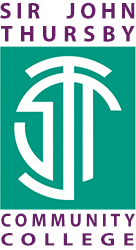Topic 1 Year 9 chemistry
| Chemistry | |||
| Topic | Reactions | ||
| No of lessons | 10 | ||
| When is it happening | Year 9 Term 2 | ||
| What will students learn | Students must know what endothermic and exothermic reactions are. They should know that during chemical reactions, bonds are broken, requiring energy and new bonds are formed, releasing energy. That chemical bonds hold atoms together. That catalysts speed up the rate of reaction, without being used up themselves. To predict whether reactions are exothermic or endothermic. To know what thermal decomposition is. To understand that atoms and molecules rearrange themselves in chemical reactions to make new products, even though mass is conserved. To know what combustion is. To predict the products of combustion and thermal decomposition and show these reactions as word and symbol equations. To compare the pros and the cons of fuels in terms of their products of combustion. To balance symbol equations. To use the mass of reactants or products to calculate the unknown masses of remaining reactants and products. To devise a general rule for how a set of compounds reacts with oxygen or thermally decomposes. | ||
| Key Knowledge that students should know at the end of 'Topic' | This is the knowledge that students will meet for the first time in this topic | Exothermic and endothermic reactions. Bond breaking and making during chemical reactions. Energy changes during chemical reactions. How catalysts work. To know what thermal decomposition is. To know that mass is conserved during a chemical reaction. To know the products of combustion and thermal decomposition reactions and be able to write word and balanced symbol equations for those reactions. To be able to evaluate fuels in terms of their products of combustion. To balance symbol equations. To be able to carry out mass calculations for chemical reactions. | |
| This is knowledge that students may have met before but will need to deepen their understanding | To know the differences between physical and chemical reactions. To know that oxidation is a reaction where a substance combines with oxygen. To be able to complete particle diagrams, word equations and symbol equations to represent chemical reactions. | ||
| Key Skills that students should be able to demonstrate at the end of 'Topic' | This is the skills that students will meet for the first time in this topic | Practical skills in carrying out chemical reactions to generate accurate data to calculate reacting masses. Writing balanced symbol equations. Calculating masses. | |
| This is skills that students may have met before but will need to develop | Students should be able to write word and symbol equations, without balancing. Students will have practical experience of chemical reactions. | ||
| Key vocabulary that students should know and understand |
Exothermic reaction, endothermic reaction, Chemical bonds, catalyst, enzymes Chemical reactions, physical changes, thermal decomposition, conserved Reactants, products, fuel, formulae, top pan balance, combustion. |
||
| The Big Question | What happens during a chemical reaction? | ||
|
Key questions that students should be able to answer at the end of the 'Topic' |
What are endothermic and exothermic reactions? | ||
| Which energy changes occur during a chemical reaction? | |||
| How can we use energy changes in chemical reactions to predict whether reactions are endothermic or exothermic? | |||
| What is thermal decomposition? | |||
| What happens during combustion? | |||
| How and why do we balance chemical equations? | |||
| What happens to mass during chemical reactions? | |||
| What happens when we burn alcohols? | |||
